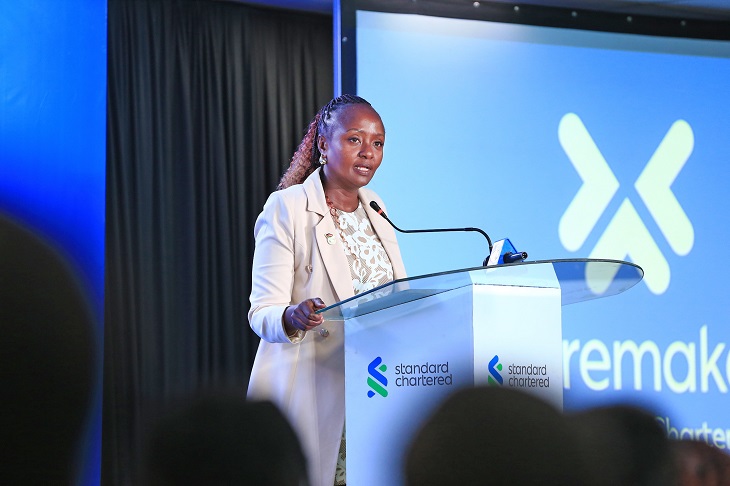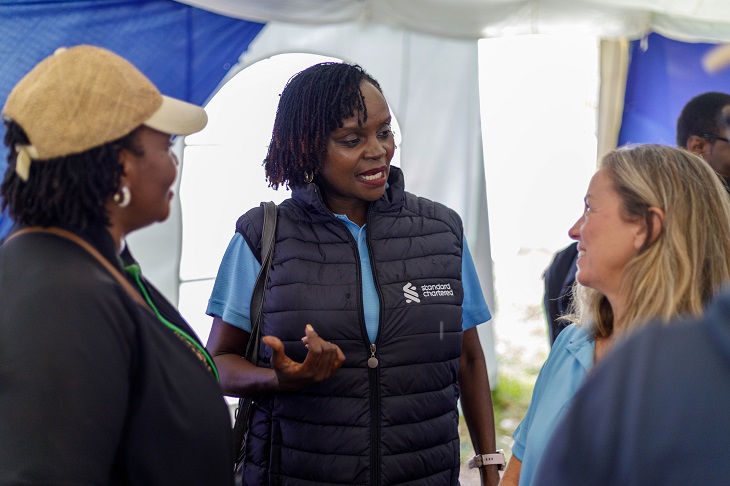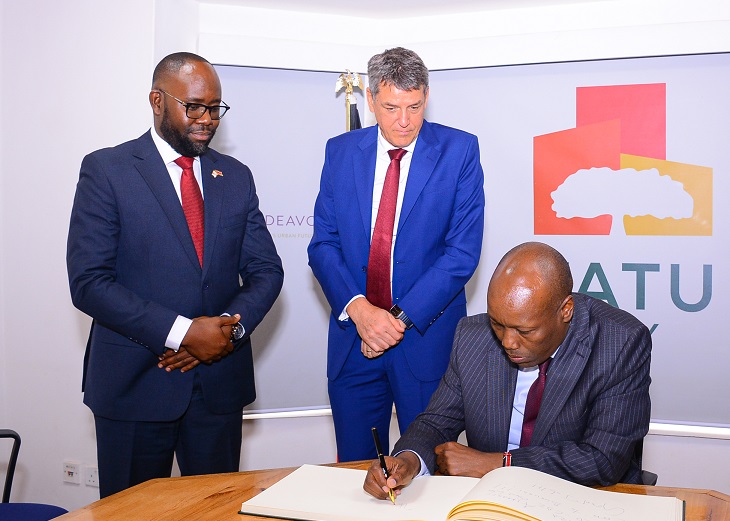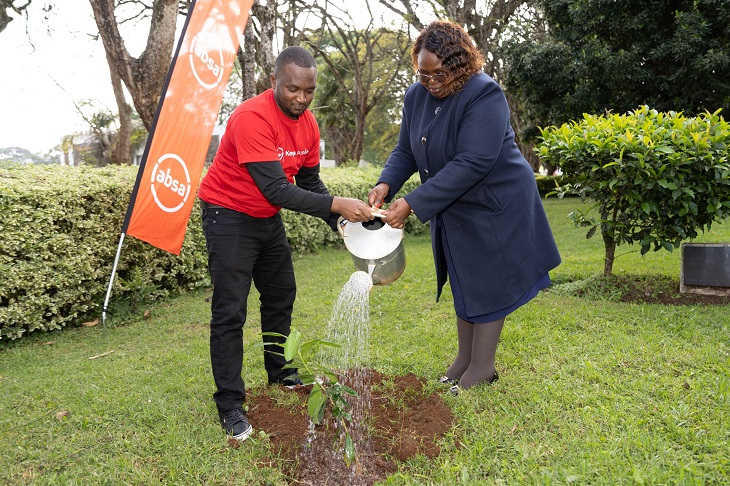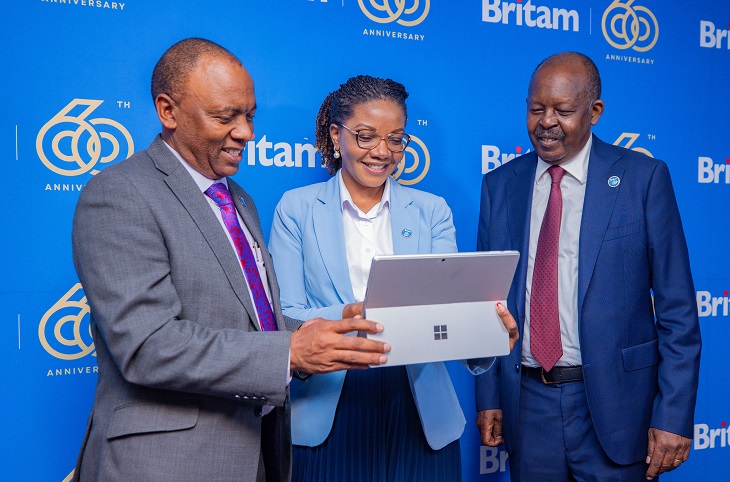The African Continental Free Trade Area (AfCFTA) is a key opportunity for Africa to alleviate poverty, drive economic activity, and achieve prosperity for her people, says Standard Bank, a key sponsor of this week’s African Continental Free Trade Area (AfCFTA) Business Forum in Cape Town.
By eliminating trade barriers and boosting intra-Africa trade, the AfCFTA aims to lift 30 million Africans out of poverty by increasing income across Africa, by 7% by 2035. Once implemented, it will be the world’s largest free trade area.
Recent global supply chain disruptions illustrate the urgent need of building domestic value chains integrated into regional and global supply ecosystems. Standard Bank is optimistic about the benefits of a single market and wants to harness its broad networks and expertise on the ground to play a key role in helping AfCFTA take off.
“Standard Bank is building the finance and trade solutions to help address the tariff and non-tariff barriers required to realize the continent’s ambitions to create an effective single market,” says Philip Myburgh, Head of Trade for Business and Commercial Banking at Standard Bank.
Myburgh adds that as Africa’s largest bank by assets, Standard Bank is dedicated to promoting growth and creating opportunities across the 20 markets it serves. Standard Bank supports Africa-centric solutions and encourages the private sector to contribute more to the health of local and regional economies.
Part of the solutions that Standard Bank has developed includes the Africa Trade Barometer, which blends qualitative and quantitative data from, initially, 10 of Africa’s leading trade economies. The Africa Trade Barometer is instrumental in solving access to information, a significant non-tariff barrier in Africa.
The Africa Trade Barometer provides a near real-time view of trade openness, access to finance, macroeconomic stability, infrastructure, foreign trade, governance, economic performance, and trade finance behavior in Africa.
For example, in Kenya, the Africa Trade Barometer found that 40% of firms’ hope for AfCTA is pinned on free trade among African countries with the spin-off on increased business volume and home-grown industries development.
The report additionally found that AfCTA presents a significant opportunity for accessing new markets under a free-trade agreement. There is a need to position Kenya to take advantage of these opportunities by focusing on value addition and agri-processing, as agriculture is a major sector. It is important to act quickly, as other countries are also vying for these opportunities.
For Africa as a whole beyond aligning legislation and reducing red tape, a more conducive environment for trade includes developing the manufacturing capabilities to beneficiate products and produce finished goods. This includes the ability to manufacture and construct the rail, road, and port infrastructure required to move goods between and across vast territories.
Beyond hard infrastructure, access to trade finance remains a challenge. While banks are important players in financing trade across the continent, perennial risks continue to limit commercial credit appetite.
“In this environment, leveraging the ability of Africa’s financial institutions to deploy capital from development finance institutions and sovereigns into effective trade finance, especially for entities that have not yet built up their credit standing, could dramatically expand intra-African trade,” says Myburgh.
Other areas where banks and the private sector could work with the AfCFTA to begin implementation in 2023, are to identify and then cooperate on leveraging growth in high-potential sectors.
“In Africa, for example, agriculture is the bedrock, biggest earner, and greatest employer in many markets. Starting with small steps to improve the movement of food and agricultural goods, inputs, services, and people could have a disproportionally large positive impact on social stability, growth, investment, and national revenue across the continent,” advises Myburgh.
Energy and power infrastructure is another area where even limited cross-border cooperation and coordinated national investment could have a disproportionally high impact on regional and continental growth.
Free trade or special economic zones have also, to date, proved their worth as drivers of investment, production, and export earnings amongst African economies.
Importantly for Africa, and critically for the AfCFTA vision of a single African market, the continent’s booming digital ability, supported by a youthful population, presents another avenue for Standard Bank to provide the finance, guidance, and digital platforms and connectivity to grow Africa’s digital revolution into a global investment proposition,” says Myburgh.
A significant non-tariff barrier in Africa is access to information and in response, Standard Bank has developed the Africa Trade Barometer, which blends qualitative and quantitative data from, initially, 10 of Africa’s leading trade economies. It provides a nearly real-time view of trade openness, access to finance, macroeconomic stability, infrastructure, foreign trade, governance, economic performance, and trade finance behavior in Africa.
“The secret to Africa’s success will be the power of partnerships, awareness of what is needed, and access to trusted information, as no one can do it alone. The AfCFTA Business Forum is the perfect opportunity to get these partnerships off the ground and working to breathe life into the move to a single market,” says Myburgh.
“It is important that we use this opportunity to accelerate moves to a practical cross-border framework on which to build the institutions, systems, and practices capable of uniting Africa’s business potential into a continental force for growth,” concludes Myburgh.




